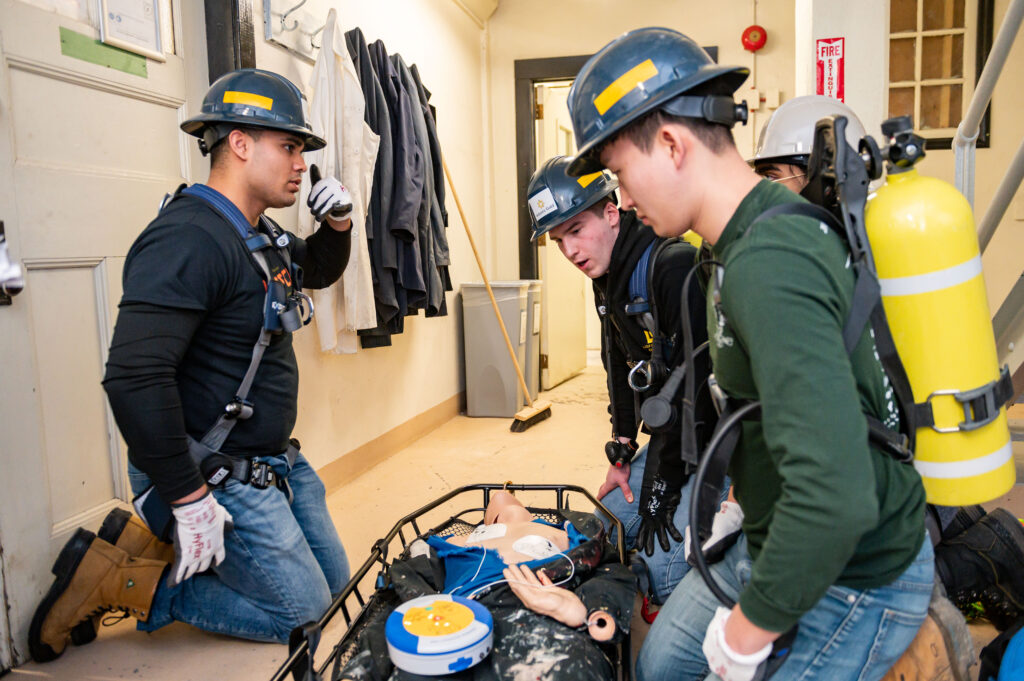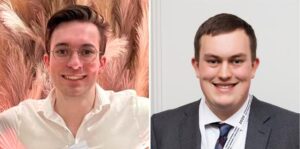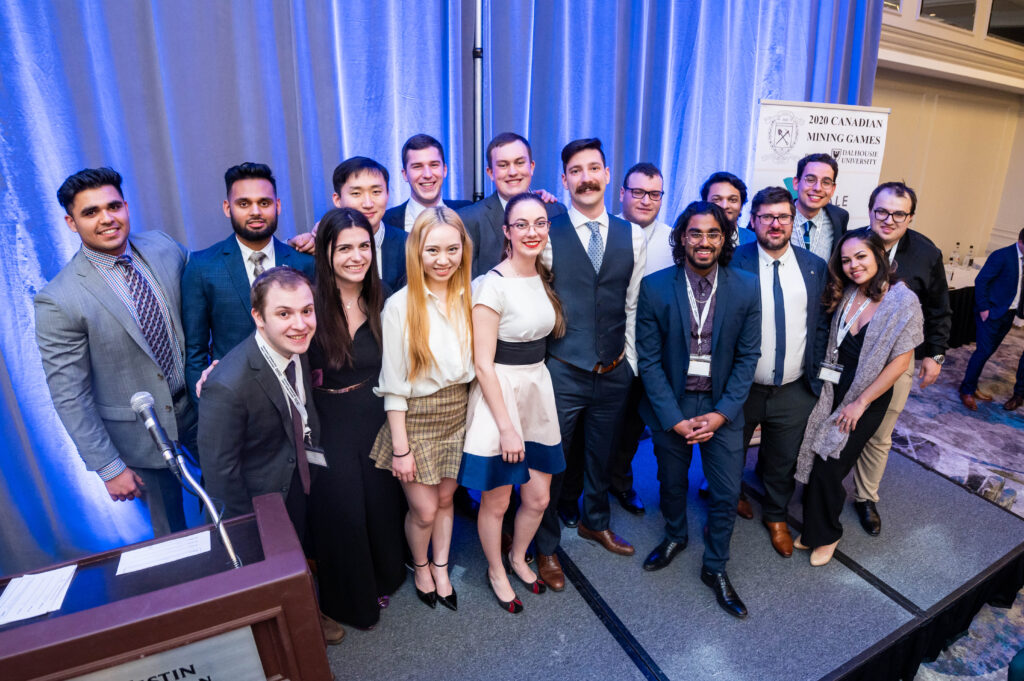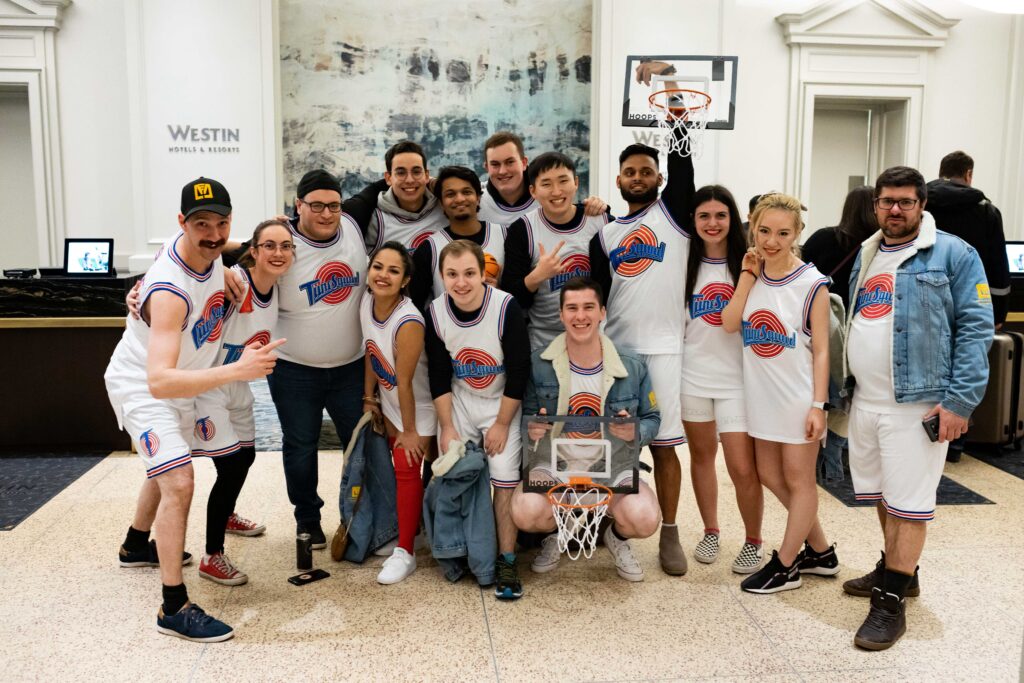We sat down to chat with Alec Gilvesy (Year 4 MinE), Chair of Min Club and Co-Captain of the U of T Mining Games Team, about preparing to take the U of T team to the 2023 Canadian Mining Games in Vancouver. The 33rd iteration of the annual event gives students across Canada a chance to showcase their knowledge of mining, problem-solving and adaptive skills. Students and industry representatives have the chance to meet and network within this tightknit, but diverse community.

Can you tell us a bit about yourself, your position and what your role involves?
I’m Alec Gilvesy, a fourth-year Lassonde Mineral Engineering student and Min Club Chair. Every year there’s two co-captains who take care of the planning, organization, putting the Mining Games team together and all that. This year it’s myself and Evan Beri – he’s currently on PEY Co-op, working with Imperial Oil in Calgary. 
Where are the Mining Games being held this year?
This year’s event is being held in Vancouver, B.C. It’s jointly hosted by the University of British Columbia and the British Columbia Institute of Technology. The Games run February 23rd to 25th, a Wednesday to a Saturday, during our Winter Break.
As you’re in your fourth year, you’re certainly aware there’s been a gap during the pandemic for hosting in-person events. Is this the first in-person one since 2020? Is there any difference you’re expecting from this experience?
Yes, this is my fourth Mining Games, but only the second in-person one, since we held two virtually in 2021 and 2022. There are only going to be three of us, including myself, from our entire team of 16 [team list at bottom of article] who have ever been to an in-person Games.

You’re a veteran, and a team leader, so what are you telling people who have not been to a real Games before?
I’ve had some people from the team ask me what to expect, as they’ve never had the chance the last two years to attend an in-person event. There’s a lot of events and programming going on constantly. For example, every night there’s a banquet where you can meet with the sponsors and other teams from the other schools. It’s always suit and tie, which a lot of people don’t even realize, so there’s a need to be prepared to dress up every evening. We pack not only for semi-formal evenings, but for some activities where you can wind up quite dirty and sweaty too. We need to pack and be ready for everything.
Some of the in-person events are starting up again, which we didn’t have the chance to hold over the last two years. There’s a number of events which are very physical – jackleg drilling, equipment handling, surveys, emergency rescue scenarios and more. Those will be returning this year, but they’ve also kept some of the online events that started during the pandemic, like sustainable development and a few others.
Can you tell us a bit more about those in-person events you’ll be doing? Is it an intense itinerary?
Some events I mentioned, like jackleg drilling, can only be done in person. It’s a drill that runs on compressed air and is actually like a pneumatic jack, so it’s jackleg or air drill. They call it lots of things, depending on where you are, but can jackleg is an Eastern Canadian term. Basically, very few mines still use them, other than for just the occasional time. It was invented in the ‘30s or ‘40s. It’s just something we’ve just traditionally keep carrying on, because it’s physical and it’s fun. It’s a challenge, as well.
We also do equipment handling, which is where they’ll bring in a mini excavator or something like that. We’ll have to do some assigned tasks, with someone on our team driving and handling the machinery.
It’s a lot of time working together and overall pretty fun. The whole event is intense, as you leave the hotel at 7 a.m., start your event by 8 a.m., you go for four hours until lunch, and you break an hour for lunch. Following, there’s a sponsor presentation, then you go out for another four hours, until 5 p.m. or 6 p.m., you come back to a banquet, which goes to 9 p.m., and then you go out and have nightlife and networking until 1 a.m. And then you do it all over again.
This is an opportunity to meet your future industry colleagues, who you might not otherwise have an opportunity to meet in person. And it’s certainly an excellent networking opportunity. Do you use this opportunity to connect?
All the events are sponsored by a different company, and not necessarily a mining company but a company involved in the mining industry. You get to network with those people, connect, stay in touch, and you might get jobs out of these connections. I do know several people who have gotten at least interviews out of the process, so it’s beneficial to meet people in person, and keep a connection.
It’s fun, because you get to meet all the other mining students in Canada. And you get to meet some friends and colleagues you might have met over your co-op or PEY. It’s a very connected community who come together from all over. You create bonds, essentially, with future professionals here who might wind up working all over the world.

Has the Lassonde Mineral Engineering program truly prepared you for a career in Engineering? Does it reflect on your team’s performance at the Mining Games?
Our LME program is pretty heavy on mineral economics and the finance side of things, in addition to the geology side of things. We usually do quite well, versus the other schools, in those events. We have events in mineral economics and a stock market challenge, which begins running a month or two before the Games. It’s a virtual competition – I do know it’s ongoing, and the people who are doing it are doing a good job.
On the geology side of things, we take three geology courses in our second and third years. When I went to the Games in 2020, I had just come out of those courses, so it was all sharp in my mind. I finished first in the mineral identification competition, which was great to do as a second-year student.
On the diversity end, I would say that U of T is fortunate to be located in such a diverse city as Toronto, which gives us access to a lot of different experiences and perspectives from many different people and cultures. Not all of the schools competing are in such a position, so it definitely gives us some unique advantages.
Hopefully, we can take home some more hardware this year.
By Phill Snel
Team U of T
Lassonde Mineral Engineering
students attending the Mining Games:
Peter Anderson
Evan Beri (Co-Captain)
Raymond Bhushan
Alec Gilvesy (Co-Captain)
Shaan Hudani
Yuefeng (Jason) Jiang
Jessie Jung
Shi Kai Li
Andriy Kalatskyy
Grant Liao
Edmund Mah
Komal Mann
Michael McCulloch
Jamil Shalabi
Ayuan (Belinda) Wang
Sami Zantout